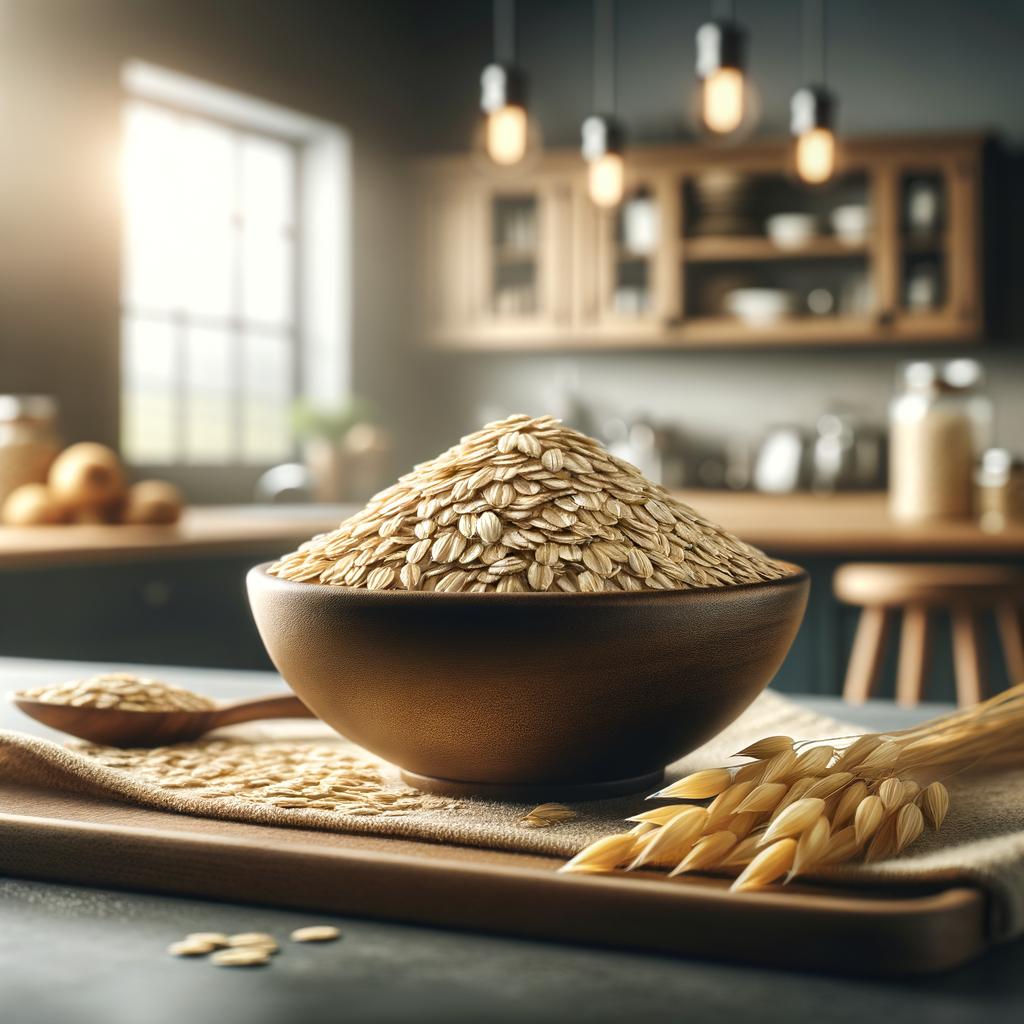Scottish Oats

Description
Welcome to the world of Scottish oats, a delightful grain that warms the heart and nourishes the body. These oats, with their earthy, slightly nutty flavor, are a staple in many a Scottish kitchen. They are whole oat groats that have been stone-ground, resulting in a coarse meal that maintains the integrity of the entire grain. Their texture is hearty and robust, offering a satisfying chewiness when cooked. Their wholesome, rustic appearance, a blend of creamy white and golden hues, is a testament to their natural goodness. What sets Scottish oats apart from their counterparts is their unique preparation method – stone grinding – which retains the nutritional value and gives them a distinctive texture and taste.
Primary Uses
Scottish oats are the star of the show in traditional Scottish porridge, where their coarse texture and rich flavor shine through. They are also used in baking, lending a rustic, hearty touch to bread, muffins, and cookies. Beyond Scotland, they're found in a variety of dishes worldwide, from hearty oatmeal breakfasts in America to savory gruel in Asia. Their absorbent nature makes them a great thickener in soups and stews. Their cultural significance extends beyond the kitchen, as they play a key role in the traditional Scottish New Year's celebration, Hogmanay, where they're used in a 'first-footing' gift of food.
History
Scottish oats have a romantic and intriguing history, deeply entwined with the country's agricultural past. The cool, damp climate of Scotland is ideal for growing oats, and thus, they've been a staple in Scottish diets for centuries. Their popularity grew in the Middle Ages when they were ground into oatmeal and used to make porridge, a traditional dish that continues to be a favorite. The story goes that Scottish soldiers would carry a sack of oatmeal and a girdle to cook their porridge while on the march. Over time, the use of Scottish oats has evolved, and they're now enjoyed globally, not just as a hearty breakfast but also in a variety of sweet and savory dishes.
Nutritional Information
Scottish oats are a powerhouse of nutrition. They are high in fiber, particularly beta-glucan, a type of soluble fiber that can help reduce cholesterol levels. They're also a good source of vitamins and minerals, including manganese, phosphorus, copper, vitamin B1, iron, selenium, magnesium, and zinc. Compared to other types of oats, Scottish oats have a lower glycemic index, which means they cause a slower rise in blood sugar levels, making them a good choice for those managing diabetes. Their high fiber content also makes them more filling, which can aid in weight management. Despite their hearty texture, they're naturally gluten-free, though those with celiac disease should ensure they're processed in a gluten-free facility. Scottish oats are a testament to the fact that the simplest foods are often the most nourishing, providing a wholesome, hearty base for countless dishes.

